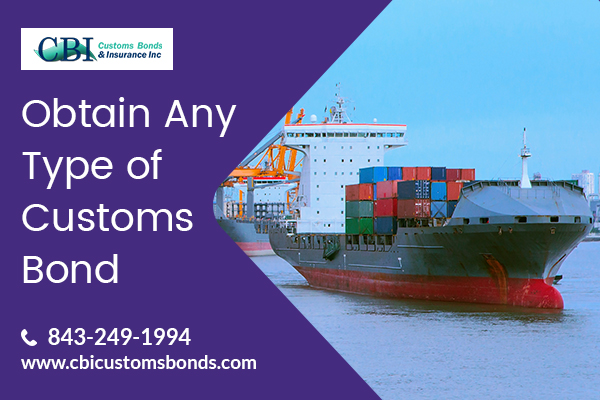5 Important Things about Customs Bond
If you’re planning to import goods into the United States,
before going ahead you should learn some important things about 301 customs bond. The U.S. Customs and
Border Protection (CBP) and the government have enforced some compulsory
requirements to import international goods in the country.
Bonds are a key element for international trading. They help
in securing your merchandise and ensuring things within legal compliances and
laws. They also help in protecting the goods from additional fines or delays.
There are different types of the bond required by the
federal agency CBP which is responsible to maintain authentic and lawful
transaction of goods at the customs entry. Beginning from the packaging and
until the unloading at the destination port, the journey of cargo can be
difficult if you don’t have customs bond.
Following are some important things to know about them.
1. It doesn’t provide coverage
Unlike other insurance policies, customs bond doesn’t
provide any coverage. It is a different type of contract that guarantees
specific obligations to be fulfilled by the importer. It has quite distinctive
functionality and that rests on what type of goods you’re importing. The
agreement happens between three main parties the surety, principal (importer),
and the CBP.
It guarantees that all duties and taxes will be fulfilled
even in case the importer fails to pay them.
2. Purchasing bond
You can purchase the customs bond easily through any
licensed customs broker. You can also work with a freight forwarding company
that can handle your shipment.
You can buy continuous
customs bond from surety companies as well. However, you can expect good
support from all these people and they will also help in preparing important
documents and clearing customs. Make sure you hire an experienced broker to
work on behalf of you.
3. A continuous bond is a better choice
There are mainly two types of customs bond popular in the process
that is a single transaction bond and continuous customs bond. So if
you’re all set to do merchandise through ocean vessels regularly, the continuous
bond is the ideal option. It is convenient and specially issued to importers who
transact goods multiple times in a year.
You can also invest in a single entry bond if you need to
import once in a year. But, this option may cost you little extra bucks as you
will need to file additional ISF.
4. They are not optional
It is made mandatory by the CBP for international
merchandisers to obtain sufficient 301
customs bond. It is not optional and one should be prepared with it. CBP
will never allow your cargo to clear the customs unless you have bonded.
5. Prices
A continuous bond of worth $50,000 or 10% of the total fees
and taxes from the previous year can be bought in $250 to $500. When importing
goods for commercial purposes, valued above $2,500 a customs bond should be posted by the importer.
For further information on bond amount
calculation, you can contact experienced freight forwarders.



Comments
Post a Comment